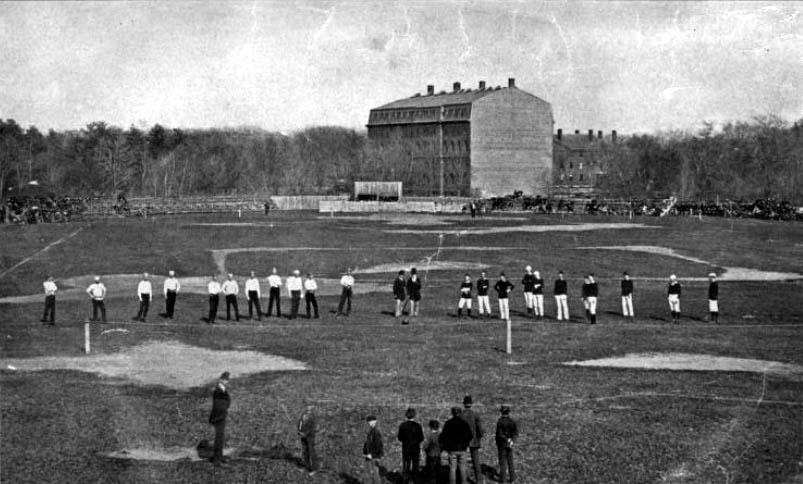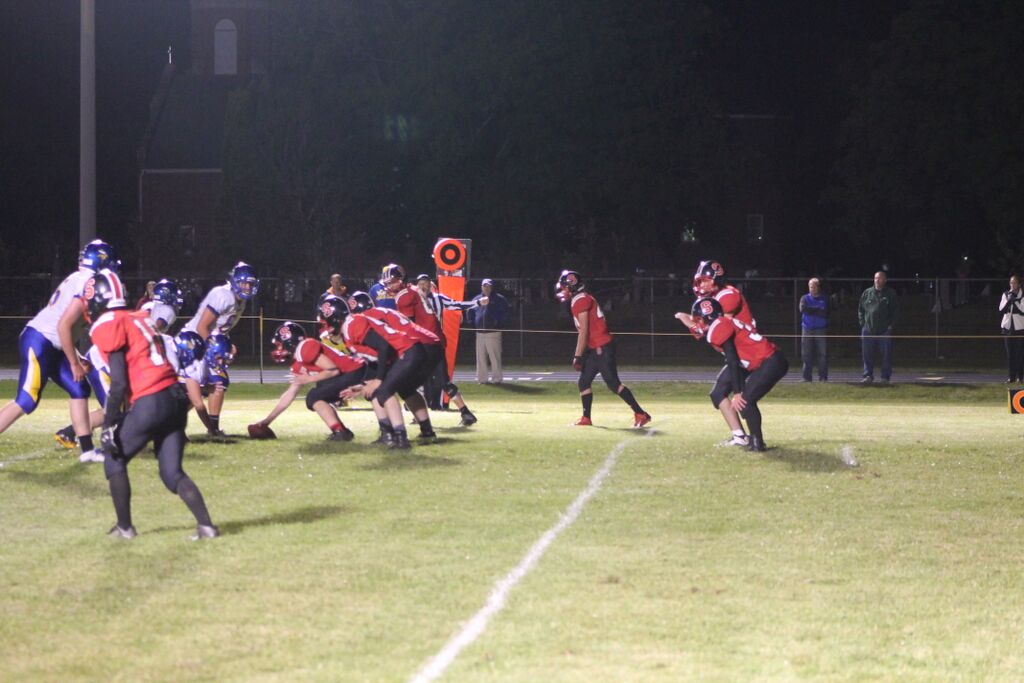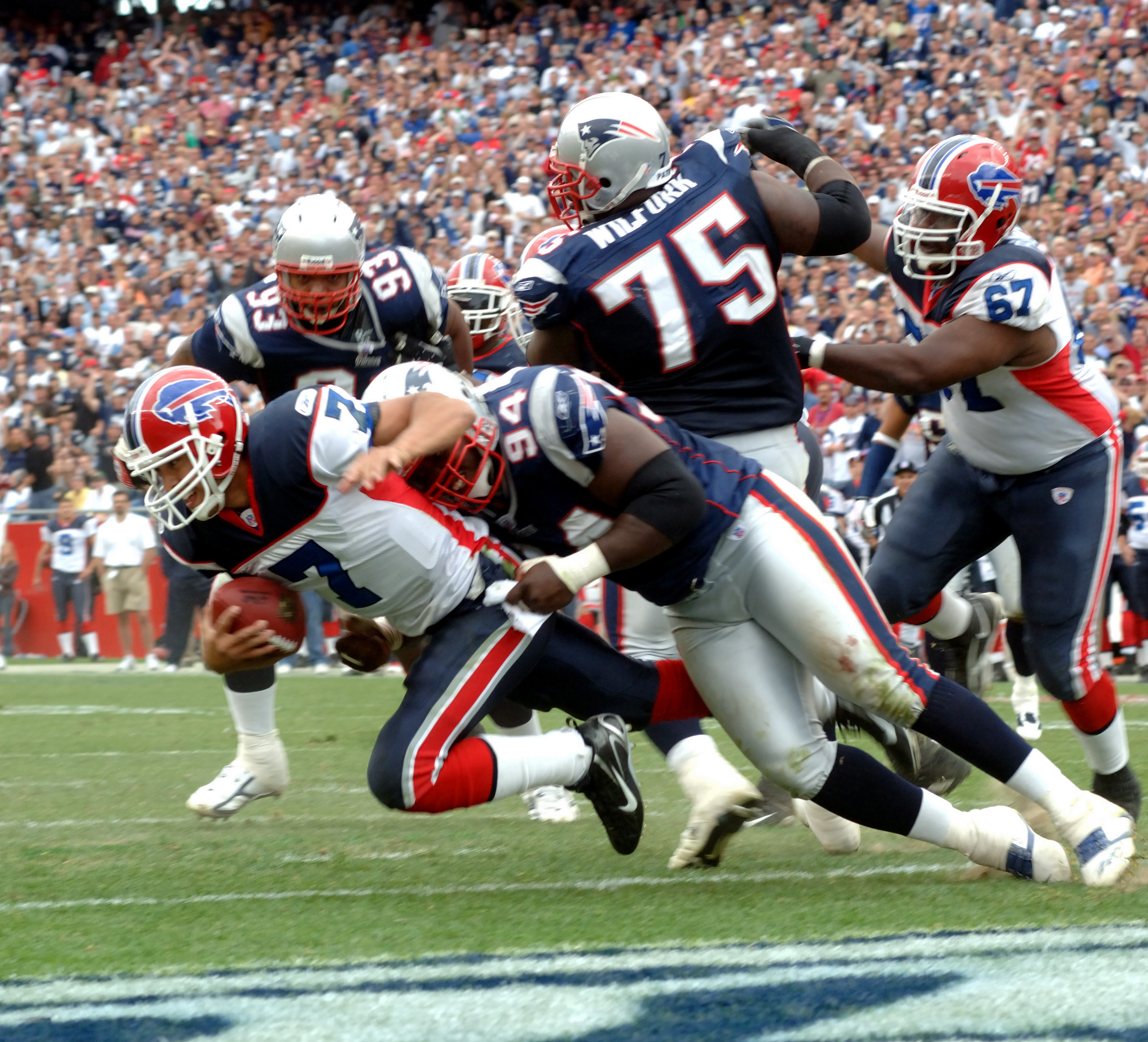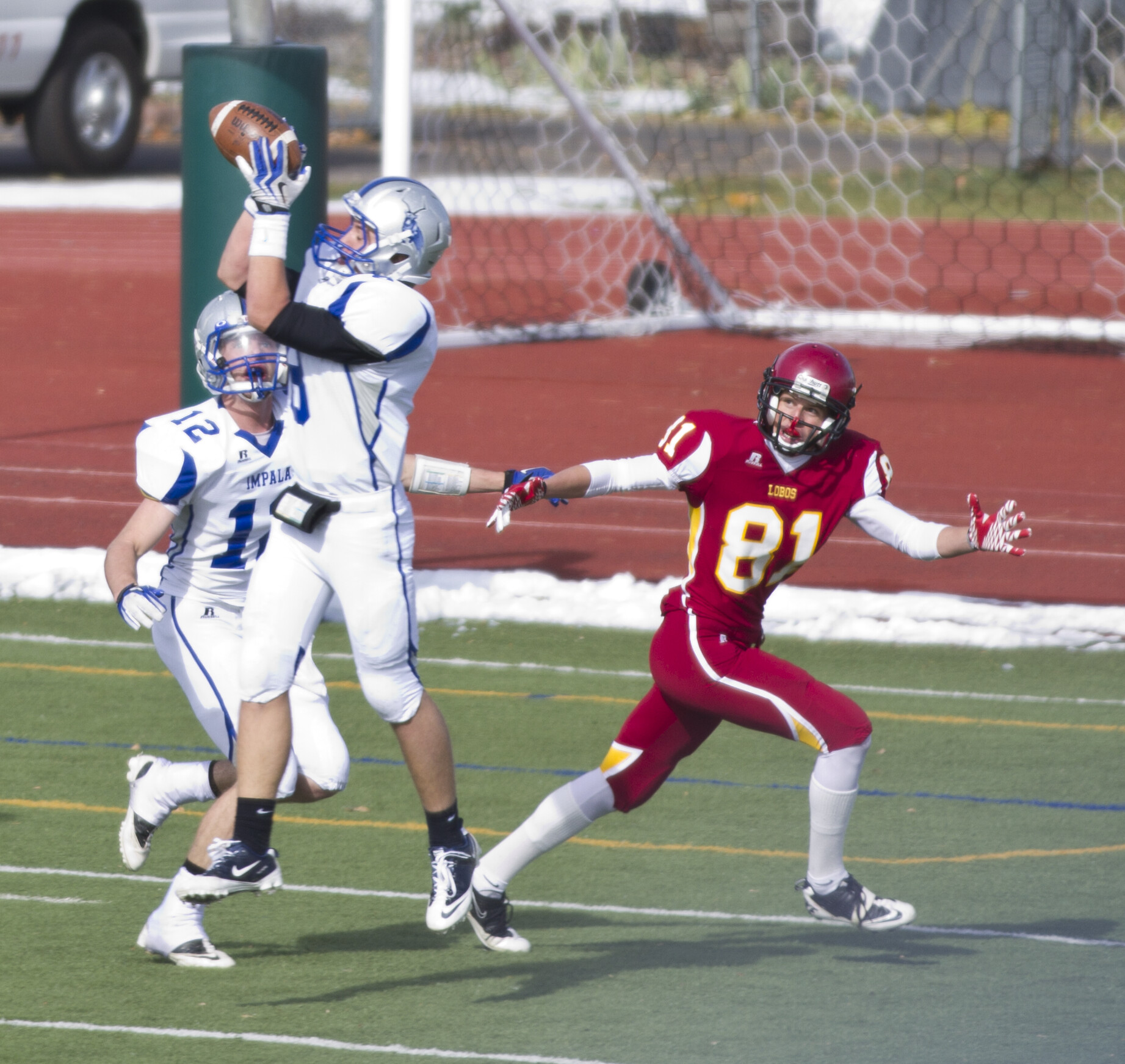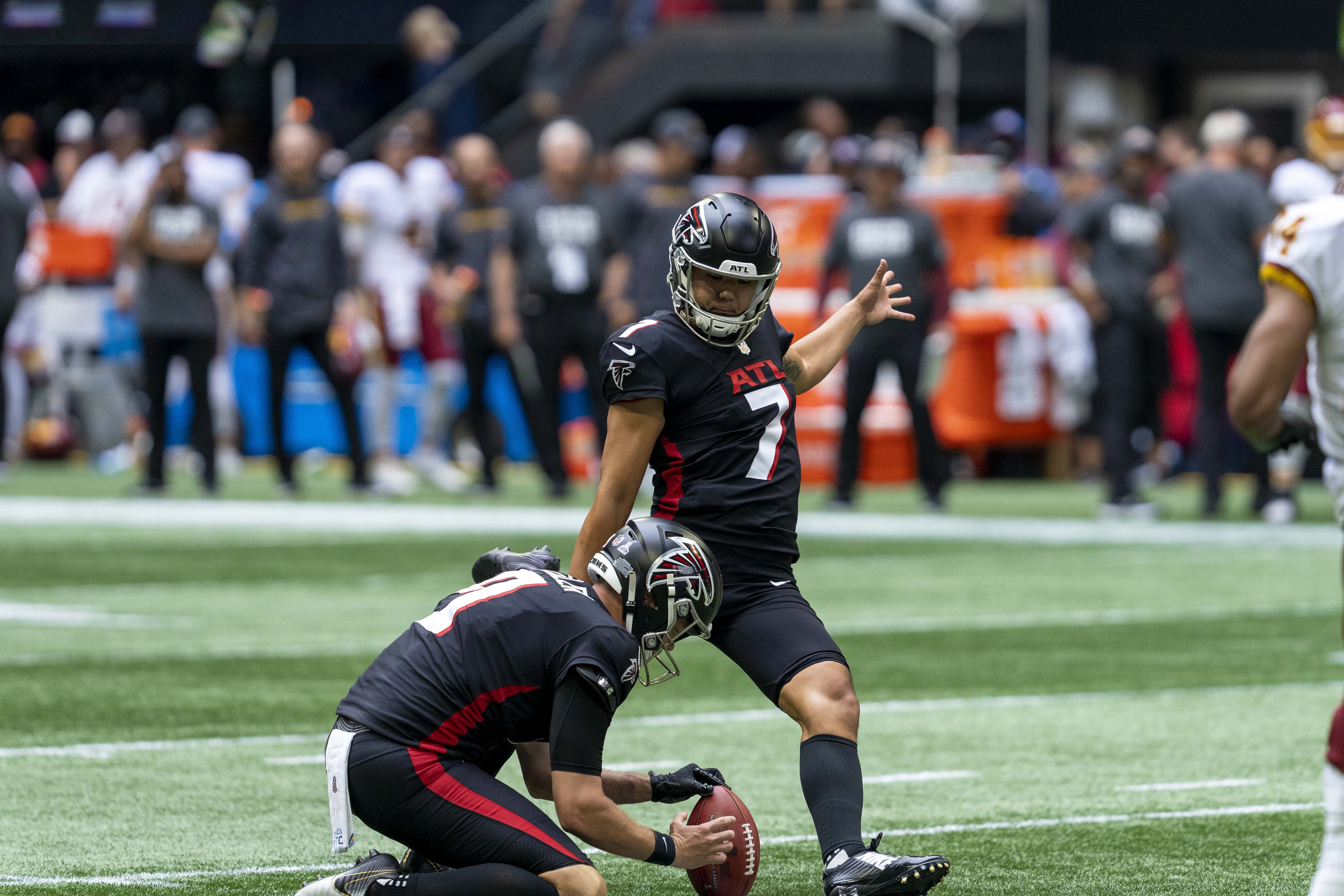|
Sudden Death (sport)
In a sport or game, sudden death (also sudden-death, sudden-death overtime, or a sudden-death round) is a form of competition where play ends as soon as one competitor is ahead of the others, with that competitor becoming the winner. Sudden death is typically used as a tiebreaker when a contest is tied at the end of regulation (normal) playing time or the completion of the normal playing task. An alternative tiebreaker method to sudden death is to play an extra, shortened segment of the game. In association football 30 minutes of extra time (overtime) after 90 minutes of normal time, or in golf one playoff round (18 holes) after four standard rounds (72 holes) are two alternatives. Sudden death playoffs typically end more quickly than the shortened play alternative. Reducing the variability of the event's duration assists those scheduling television time and team travel. Fans may see sudden death as exciting and suspenseful, or they may view the format as compromising the sport, c ... [...More Info...] [...Related Items...] OR: [Wikipedia] [Google] [Baidu] |
Sport
Sport pertains to any form of Competition, competitive physical activity or game that aims to use, maintain, or improve physical ability and Skill, skills while providing enjoyment to participants and, in some cases, entertainment to spectators. Sports can, through casual or organized participation, improve participants' physical health. Hundreds of sports exist, from those between single contestants, through to those with hundreds of simultaneous participants, either in teams or competing as individuals. In certain sports such as racing, many contestants may compete, simultaneously or consecutively, with one winner; in others, the contest (a ''match'') is between two sides, each attempting to exceed the other. Some sports allow a "tie" or "draw", in which there is no single winner; others provide tie-breaking methods to ensure one winner and one loser. A number of contests may be arranged in a tournament producing a champion. Many sports leagues make an annual champion by ar ... [...More Info...] [...Related Items...] OR: [Wikipedia] [Google] [Baidu] |
Kansas Playoff
Overtime or extra time is an additional period of play specified under the rules of a sport to bring a game to a decision and avoid declaring the match a tie or draw where the scores are the same. In some sports, this extra period is played only if the game is required to have a clear winner, as in single-elimination tournaments where only one team or players can advance to the next round or win the tournament. The rules of overtime or extra time vary between sports and even different competitions. Some may employ " sudden death", where the first player or team who scores immediately wins the game. In others, play continues until a specified time has elapsed, and only then is the winner declared. If the contest remains tied after the extra session, depending on the rules, the match may immediately end as a draw, additional periods may be played, or a different tiebreaking procedure such as a penalty shootout may be used instead. The terms ''overtime'' and ''in overtime'' (abbr ... [...More Info...] [...Related Items...] OR: [Wikipedia] [Google] [Baidu] |
College Football
College football (french: Football universitaire) refers to gridiron football played by teams of student athletes. It was through college football play that American football rules first gained popularity in the United States. Unlike most other sports in North America, no official minor league farm organizations exist in American or Canadian football. Therefore, college football is generally considered to be the second tier of American and Canadian football; one step ahead of high school competition, and one step below professional competition (the NFL). In some areas of the US, especially the South and the Midwest, college football is more popular than professional football, and for much of the 20th century college football was seen as more prestigious. A player's performance in college football directly impacts his chances of playing professional football. The best collegiate players will typically declare for the professional draft after three to four years of colleg ... [...More Info...] [...Related Items...] OR: [Wikipedia] [Google] [Baidu] |
High School Football
High school football (french: football au lycée) is gridiron football played by high school teams in the United States and Canada. It ranks among the most popular interscholastic sports in both countries, but its popularity is declining, partly due to risk of injury, particularly concussions. According to ''The Washington Post'', between 2009 and 2019, participation in high school football declined by 9.1%. It is the basic level or step of tackle football. Rules The National Federation of State High School Associations (NFHS) establishes the rules of high school American football in the United States. In Canada, high school is governed by Football Canada and most schools use Canadian football rules adapted for the high school game except in British Columbia, which uses the NFHS rules. Since the 2019 high school season, Texas is the only state that does not base its football rules on the NFHS rule set, instead using NCAA rules with certain exceptions shown below. Through t ... [...More Info...] [...Related Items...] OR: [Wikipedia] [Google] [Baidu] |
Safety (American Football Score)
In gridiron football, the safety (American football) or safety touch (Canadian football) is a scoring play that results in two points being awarded to the scoring team. Safeties can be scored in a number of ways, such as when a ball carrier is tackled in his own end zone or when a foul is committed by the offense in their own end zone. After a safety is scored in American football, the ball is kicked off to the team that scored the safety from the 20-yard line; in Canadian football, the scoring team also has the options of taking control of the ball at their own 35-yard line or kicking off the ball, also at their own 35-yard line. The ability of the scoring team to receive the ball through a kickoff differs from the touchdown and field goal, which require the scoring team to kick the ball off to the scored upon team. Despite being of relatively low point value, safeties can have a significant impact on the result of games, and Brian Burke of Advanced NFL Stats estimated that s ... [...More Info...] [...Related Items...] OR: [Wikipedia] [Google] [Baidu] |
Interception
In ball-playing competitive team sports, an interception or pick is a move by a player involving a pass of the ball—whether by foot or hand, depending on the rules of the sport—in which the ball is intended for a player of the same team but caught by a player of the team on defense, who thereby usually gains possession of the ball for their team. It is commonly seen in football, including American and Canadian football, as well as association football, rugby league, rugby union, Australian rules football and Gaelic football, as well as any sport by which a loose object is passed between players toward a goal. In basketball, a pick is called a steal. American/Canadian football In American football and Canadian football, an interception occurs when a forward pass that has not yet touched the ground is caught by a player of the opposing defensive team. This leads to an immediate change of possession during the play, and the defender who caught the ball can immediately attem ... [...More Info...] [...Related Items...] OR: [Wikipedia] [Google] [Baidu] |
Field Goal (American And Canadian Football)
A field goal (FG) is a means of scoring in gridiron football. To score a field goal, the team in possession of the ball must place kick, or drop kick, the ball through the goal, i.e., between the uprights and over the crossbar. The entire ball must pass through the vertical plane of the goal, which is the area above the crossbar and between the uprights or, if above the uprights, between their outside edges. American football requires that a field goal must only come during a play from scrimmage (except in the case of a fair catch kick) while Canadian football retains open field kicks and thus field goals may be scored at any time from anywhere on the field and by any player. The vast majority of field goals, in both codes, are place kicked. Drop kicked field goals were common in the early days of gridiron football but are almost never done in modern times. In most leagues, a successful field goal awards three points (a notable exception is six-man football in which, due to the ... [...More Info...] [...Related Items...] OR: [Wikipedia] [Google] [Baidu] |
Field Goal Range
Field goal range is the part of the field in American football where there is a good chance that a field goal attempt will be successful. A field goal is normally 17 yards (7 yards in Canadian football) longer than the distance of the line of scrimmage to the goal line, as it includes the end zone (10 yards) and 7 yards to where the holder places the ball. In Canadian football, the goal posts are on the goal lines, in front of the end zones. Therefore, if the line of scrimmage is at the 30, the field goal would be 47 yards (in American football) or 37 yards (in Canadian football). Average field goal range The exact field goal range varies for each team, depending on the ability of the team's placekicker. While some weaker placekickers may have trouble kicking field goals longer than 30 yards (making field goals from beyond the 13 difficult), others may consistently make 50-yarders, making it practical to kick from beyond the 33. For most NFL kickers, the 35-yard line is typically ... [...More Info...] [...Related Items...] OR: [Wikipedia] [Google] [Baidu] |
Gridiron Football
Gridiron football,"Gridiron football" ''Encyclopædia Britannica''. Retrieved October 20, 2010. also known as North American football or, in North America, simply football, is a family of football team sports primarily played in the United States and Canada. American football, which uses 11 players, is the form played in the United States and the best known form of gridiron football worldwide, while Canadian football, which uses 12 players, predominates in Canada. Other derivative varieties include arena football, flag football and amateur games such as Touch football (American), touch and street football (American), street football. Football is played at professional gridiron football, professional, college football, collegiate, High school football, high school, semi-professional, and amateur levels. ... [...More Info...] [...Related Items...] OR: [Wikipedia] [Google] [Baidu] |
FIFA
FIFA (; stands for ''Fédération Internationale de Football Association'' ( French), meaning International Association Football Federation ) is the international governing body of association football, beach football and futsal. It was founded in 1904 to oversee international competition among the national associations of Belgium, Denmark, France, Germany, the Netherlands, Spain, Sweden and Switzerland. Headquartered in Zürich, Switzerland, its membership now comprises 211 national associations. These national associations must each also be members of one of the six regional confederations into which the world is divided: CAF (Africa), AFC (Asia and Australia), UEFA (Europe), CONCACAF (North & Central America and the Caribbean), OFC (Oceania) and CONMEBOL (South America). FIFA outlines a number of objectives in the organizational Statutes, including growing association football internationally, providing efforts to ensure it is accessible to everyone, and advocating for ... [...More Info...] [...Related Items...] OR: [Wikipedia] [Google] [Baidu] |
Laws Of The Game (association Football)
The Laws of the Game are the codified rules of association football. The laws mention the number of players a team should have, the game length, the size of the field and ball, the type and nature of fouls that referees may penalize, the offside law, and many other laws that define the sport. During a match, it is the task of the referee to interpret and enforce the Laws of the Game. There were various attempts to codify rules among the various types of football in the mid-19th century. The extant Laws date back to 1863 where a ruleset was formally adopted by the newly formed Football Association. Over time, the Laws have been amended, and since 1886 they have been maintained by the International Football Association Board (IFAB). The Laws are the only rules of association football FIFA permits its members to use. The Laws currently allow some minor optional variations which can be implemented by national football associations, including some for play at the lowest levels, but ... [...More Info...] [...Related Items...] OR: [Wikipedia] [Google] [Baidu] |

